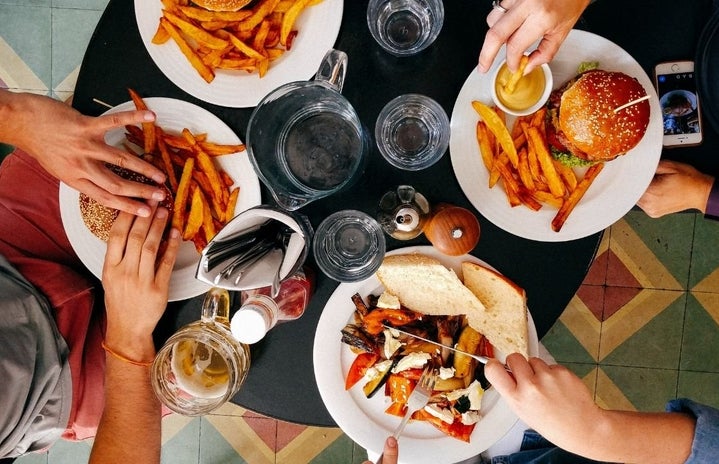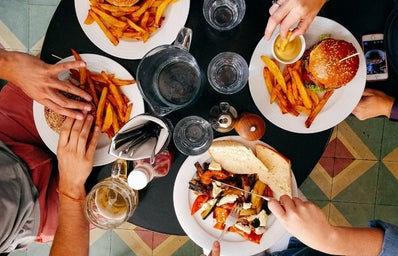The question ‘what are you having for dinner?’ is one I constantly find myself asking those around me and vice versa. We are intrinsically nosey about what other people choose to eat, which is why it is no surprise that ‘What I eat in a day’ has become a viral trend on platforms such as TikTok and Instagram, whereby creators share everything they consume throughout the day. Though these videos are clearly interesting to viewers and encourage them to try new dishes by serving as wellness inspiration, in a society fixated on appearance and dieting these videos seem to serve more harm than good.
In consideration that comparison is an ordinary feature of human cognition, these videos naturally lead to viewers comparing their diet to the one they’re observing through their screens, which can transpire to feelings of guilt in the case that they have seemingly eaten either a lot greater or less ‘healthy’ than the creator of the video. Since fifty per cent of the population already indicate problematic relationships with food, it is not surprising that someone’s shame over what they’ve eaten in comparison to someone else can trigger them to obtain restrictive eating patterns. However, copying and limiting yourself to someone else’s eating habits is unnatural and most of the time is invalidating of our own body signals which serve to guide the way we eat.
These videos fail to address that our physical activity, genetics and our backgrounds are all factors of the foods we eat. Therefore, the fact both our energy requirements and food preferences are specific to us means that using the ‘WIEIAD’ trend to guide what and when we eat is damaging to our health. For instance, an athlete who regularly partakes in intense exercise will obviously require more food than someone who is a lot less active. Given that food is fuel for our body, by example it would be extremely unhealthy for this athlete to imitate the diet of someone who has much lower energy requirements, and who could even have a personal weight loss goal which is playing a role in their diet.
These videos are often accompanied by captions such as ‘What I eat in a day as model’, or ‘What I eat in the day as someone two stone down’, which both idealises a smaller body and puts forth a false message that if you eat the same as this person, you can also look the same. Likewise, clips of the creator’s physique, which people have referred to as ‘body checking’, whereupon they are often displaying their abdomen or a very flat stomach, serve in the same manner. Rather than focusing on health or food enjoyment, videos accompanied by either ‘body checking’ or such captions suggest they are focused on food mostly as a way to manipulate their weight and shape. But food is so much more than how it makes us look; more importantly, it should be viewed upon what it allows us to do, how it makes us feel, and the ways in which it brings us together.
Not to be mentioned, ‘WIEIAD’ videos are just a glimpse of what someone supposedly eats since they only provide an insight into one single day, and they may not even be entirely truthful. The phrase ‘don’t believe everything you see on the internet’ proceeds in the fact we don’t know if the person actually ate more, less or different from the food they have shared.
Whilst it may sound like an overreaction to a trend which is supposed to be fun and wellness-motivating, the bottom line is that seeing these types of videos over and over again on your feed can be damaging, especially to those who already have a complicated relationship with food. Therefore, despite the fact they often encourage creativity in the kitchen, it is important to find a balance between food inspiration and satisfying your own needs. If you find yourself being affected by these types of videos you should remind yourself that food consumption is entirely individual for the reason being everyone’s backgrounds are unique, whether this is down to our differing levels of physical activity or simply our genetics. Additionally, you can try and teach your algorithm not to show these types of videos by avoiding them as best as you can.
Unfortunately, if it wasn’t for both dieting culture and the frequently imposed notion that we should always strive to better ourselves in one way or another, these videos could provide merely a bit of fun and food enthusiasm. Yet in defiance of the negative feelings that may manifest from the ‘WIEIAD’ trend, bring to mind that life is too short to spend overthinking everything you’ve eaten in a day and comparing it to a stranger on a screen.


